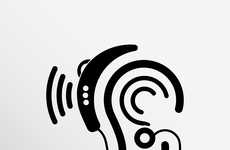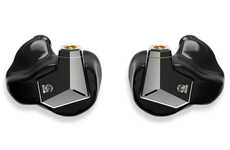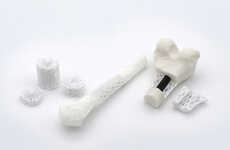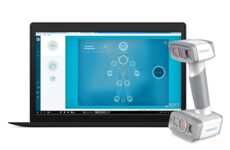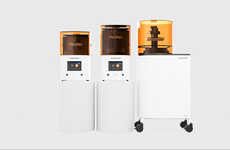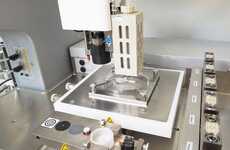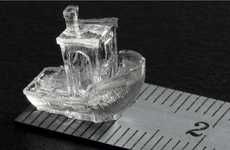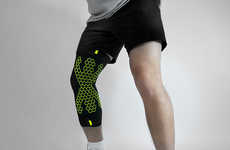
University of Wollongong Researchers Advance Reconstructive Surgery with 3D Alek
References: uow.edu.au & dezeen
Researchers from the University of Wollongong in Australia are revolutionizing reconstructive surgery through the development of a bioprinter that can produce ultra-realistic 3D-printed ears.
The machine — which is simply nicknamed '3D Alek,' makes use of stem cells as bio-ink. This has been developed through a collaboration between the University of Wollongong and the Australian National Fabrication Facility. The creators refer to the 3D-printed ears as "living ears." The highly specialized machine has already been placed in practice at the Royal Prince Alfred Hospital in Sydney which is "the first hospital in New South Wales to have the high-tech 3D bioprinter on-site."
3D Alek is an extremely important milestone. Not only does it produce realistic 3D-printed ears but it also brings scientists closer to developing "a complex medical procedure for children with microtia."
The machine — which is simply nicknamed '3D Alek,' makes use of stem cells as bio-ink. This has been developed through a collaboration between the University of Wollongong and the Australian National Fabrication Facility. The creators refer to the 3D-printed ears as "living ears." The highly specialized machine has already been placed in practice at the Royal Prince Alfred Hospital in Sydney which is "the first hospital in New South Wales to have the high-tech 3D bioprinter on-site."
3D Alek is an extremely important milestone. Not only does it produce realistic 3D-printed ears but it also brings scientists closer to developing "a complex medical procedure for children with microtia."
Trend Themes
1. Bioprinting Advancements - The development of the bioprinter '3D Alek' demonstrates significant advancements in the field of bioprinting.
2. Reconstructive Surgery Innovation - The use of 3D-printed ears created with stem cells opens up new possibilities for more realistic and effective reconstructive surgery procedures.
3. Regenerative Medicine Breakthrough - The collaboration between the University of Wollongong and the Australian National Fabrication Facility showcases a major breakthrough in the field of regenerative medicine.
Industry Implications
1. Medical Devices - The 3D-printed ears present an opportunity for companies in the medical devices industry to develop innovative products for reconstructive surgery.
2. Biotechnology - The advancements in bioprinting using stem cells create potential for disruptive innovation in the biotechnology industry.
3. Healthcare - The application of 3D-printed ears in reconstructive surgery can lead to advancements in healthcare practices and patient outcomes.
2.8
Score
Popularity
Activity
Freshness


